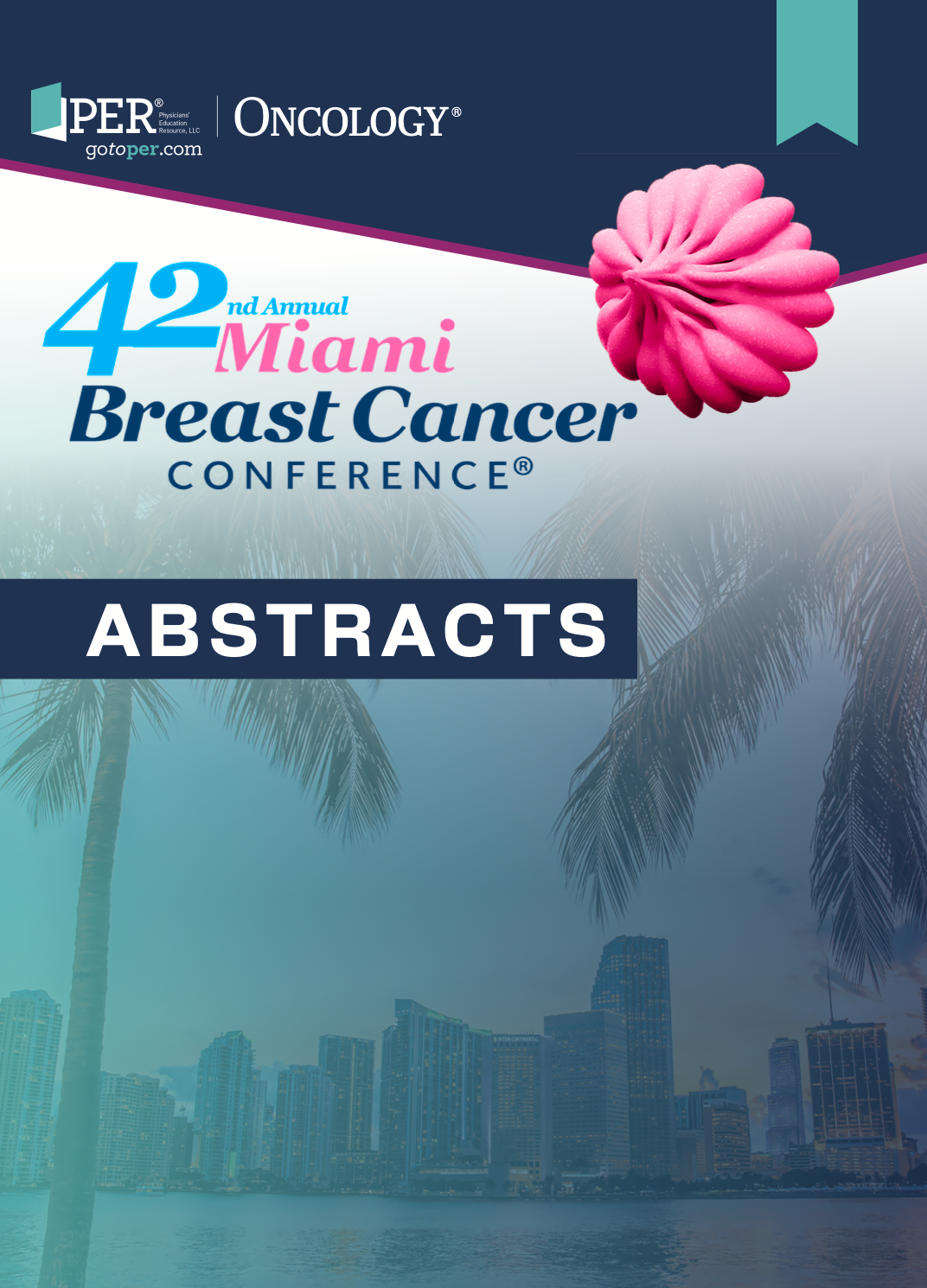TPS 28 ELEGANT: Elacestrant VS Standard Endocrine Therapy in Women and Men With Node-Positive, Estrogen Receptor-Positive, HER2-Negative, Early Breast Cancer With High Risk of Recurrence in a Global, Multicenter, Randomized, Open-Label Phase 3 Study
TPS 28 ELEGANT: Elacestrant VS Standard Endocrine Therapy in Women and Men With Node-Positive, Estrogen Receptor-Positive, HER2-Negative, Early Breast Cancer With High Risk of Recurrence in a Global, Multicenter, Randomized, Open-Label Phase 3 Study

Background
Adjuvant endocrine therapy (ET) is the standard of care (SOC) for treating estrogen receptor–positive (ER+)/HER2-negative (HER2–) early breast cancer (EBC). Despite advances to optimize adj treatment in high-risk ER+/HER2- EBC, there continues to be a risk of local and metastatic (incurable) recurrence that persists, and new therapies with desirable safety profiles are warranted. Elacestrant is a next-generation oral SERD that provides a novel mechanism of action that has shown both SERD (degradative) and SERM (partial agonist) activity that differs from currently available adjuvant ET. In the EMERALD trial, elacestrant significantly prolonged progression-free survival (PFS) vs SOC ET in the overall population (HR, 0.70; 95% CI, 0.55-0.88; P = .0018) and in patients with ESR1-mutated tumors (HR, 0.55; 95% CI, 0.39-0.77; P = .0005). In patients with ESR1-mutated tumors who received prior ET plus CDK4/6 inhibitor (CDK4.6i) at 12 months or longer, median PFS with elacestrant was 8.6 months vs 1.9 months with SOC ET. In a preoperative, window of opportunity ER+/HER2– EBC trial (SOLTI-1905-ELIPSE), elacestrant was associated with complete cell cycle arrest (defined as Ki67 < 2.7%) rate of 27% and a statistically significant mean change from baseline, shifting tumor biology toward a more endocrine-sensitive and less proliferative tumor phenotype. Given that elacestrant demonstrated efficacy in metastatic breast cancer regardless of ESR1-mutation status relative to SOC ET and has shown biologic activity in EBC, it is hypothesized that elacestrant can prolong invasive breast cancer-free survival (IBCFS) in patients with high-risk EBC who received prior adjuvant ET with or without CDK4/6i.
Materials and Methods
ELEGANT (NCT06492616) is a global, multicenter, open-label phase 3 study designed to evaluate elacestrant vs SOC ET (aromatase inhibitor or tamoxifen) in patients with EBC and a high risk of recurrence. Patients will be randomized 1:1 to continue SOC ET or to elacestrant for a duration of 5 years. Eligible patients are women or men with ER+/HER2− node-positive EBC who have completed 24 to 60 months of adjuvant ET with or without CDK4/6i, and an ECOG performance status of≤1. Patients who received a prior CDK4/6i or a PARP inhibitor must have already completed or discontinued these treatments. Pre/perimenopausal women and men will be administered a LHRH agonist. Exclusion criteria include inflammatory breast cancer, history of prior invasive breast cancer, and > 6 month continuous interruption of prior SOC adjuvant ET or discontinuation of adjuvant ET > 6 months prior to randomization. The primary end point is IBCFS. Key secondary end points include distant relapse-free survival, overall survival, invasive disease-free survival, safety, patient-reported outcomes-quality of life, and pharmacokinetics.
Status
Planned enrollment is 4220 patients; recruitment is ongoing.
